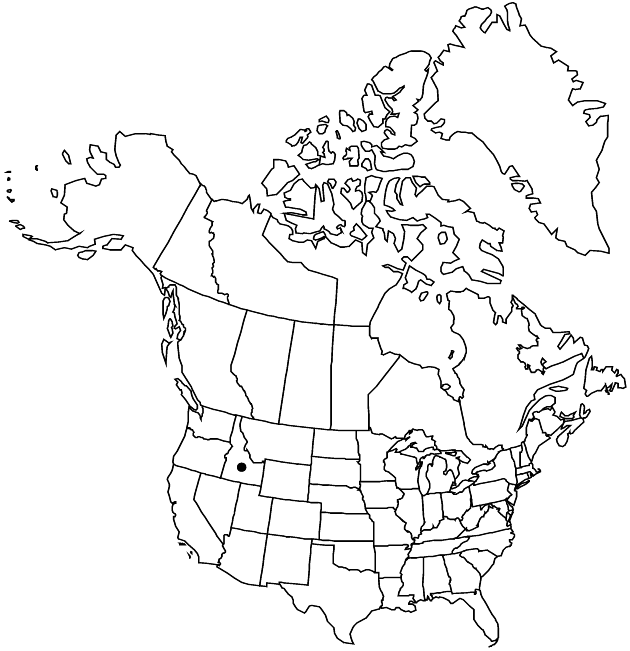Ericameria parryi var. salmonensis
Phytologia 75: 89. 1993.
Common names: Salmon River rabbitbrush
Basionym: Chrysothamnus parryi subsp. salmonensis L. C. Anderson Phytologia 38: 317, fig. 4. 1978
Revision as of 20:25, 16 December 2019 by FNA>Volume Importer
Plants 30–60 cm. Leaves widely spaced, green; blades 1-nerved, linear to narrowly oblanceolate, 30–50(–80) × 1–2(–3) mm, faces glabrous, viscidulous; distalmost overtopping arrays. Heads usually 4–8 in lax (much branched), racemiform to cymiform-paniculiform arrays. Involucres 10–12 mm. Phyllaries (11–)13–17(–19), chartaceous, outer herbaceous-tipped, apices erect, acuminate (glabrous, viscidulous). Florets (4–)5–6; corollas pale yellow, 7.5–10 mm, tubes distally puberulent, throats gradually dilated, lobes 1–1.5 mm. 2n = 18.
Phenology: Flowering late summer–fall.
Habitat: Barren, rocky soils
Elevation: 1400–1800 m
Discussion
Variety salmonensis grows along the Middle Fork of the Salmon River and its tributaries.
Selected References
None.
Lower Taxa
None.
